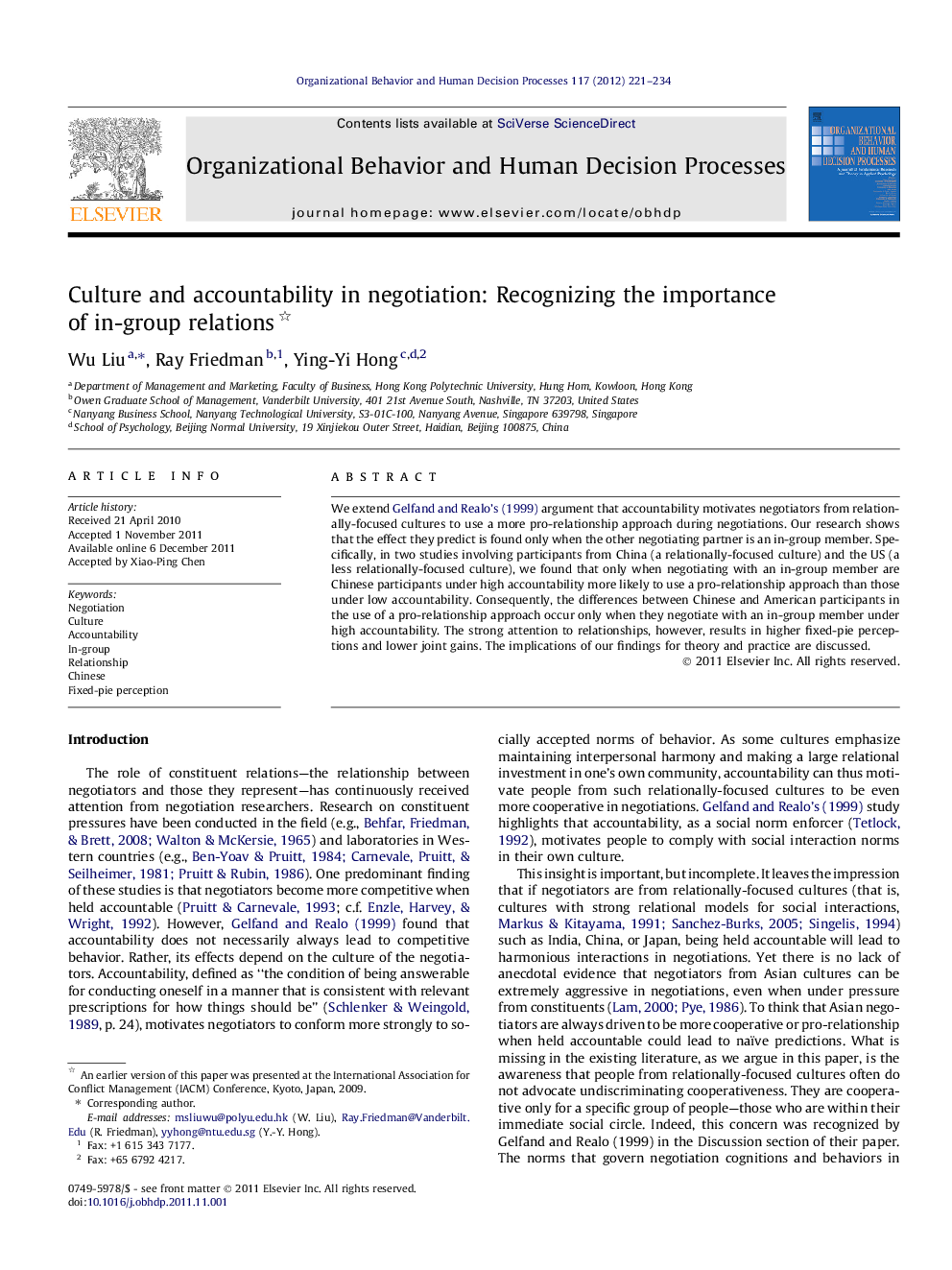| Article ID | Journal | Published Year | Pages | File Type |
|---|---|---|---|---|
| 888721 | Organizational Behavior and Human Decision Processes | 2012 | 14 Pages |
We extend Gelfand and Realo’s (1999) argument that accountability motivates negotiators from relationally-focused cultures to use a more pro-relationship approach during negotiations. Our research shows that the effect they predict is found only when the other negotiating partner is an in-group member. Specifically, in two studies involving participants from China (a relationally-focused culture) and the US (a less relationally-focused culture), we found that only when negotiating with an in-group member are Chinese participants under high accountability more likely to use a pro-relationship approach than those under low accountability. Consequently, the differences between Chinese and American participants in the use of a pro-relationship approach occur only when they negotiate with an in-group member under high accountability. The strong attention to relationships, however, results in higher fixed-pie perceptions and lower joint gains. The implications of our findings for theory and practice are discussed.
► Group membership, accountability, and culture together influence negotiation norms. ► We conducted two studies with Chinese and American participants. ► The cultural differences occur only in the high-accountability/in-group condition. ► Using a pro-relationship approach explains why social conditions affect negotiation.
